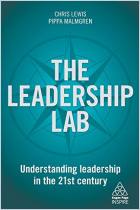加入 getAbstract 阅读摘要

加入 getAbstract 阅读摘要
Blair Sheppard and Ceri-Ann Droog
A Crisis of Legitimacy
Today’s toughest global challenges are unintended consequences of yesterday’s success. If our prevailing institutions can’t adapt, they could lose the right to lead.
Strategy+business, 2019
看看什么内容?
Societies depend on functioning institutions, but all around the world, people are losing faith.
Recommendation
Every modern society depends on institutions – financial, governmental, educational, legal – to provide services necessary for its functioning. But around the world, these institutions are losing their footing as broad social and technological trends shake their foundations. In a sweeping article for Strategy+business, Blair Sheppard, PwC’s global leader of strategy and leadership development, and Ceri-Ann Droog, a director with PwC UK and thought leader in global strategy and leadership development, describe the emerging challenges and dilemmas for institutional leaders around the world.
Summary
About the Authors
Blair Sheppard is the global leader of strategy and leadership development for the PwC network of companies. He is also professor emeritus and dean emeritus of Duke University’s Fuqua School of Business. Ceri-Ann Droog, a director with PwC UK, is a thought leader in global strategy and leadership development.























Comment on this summary